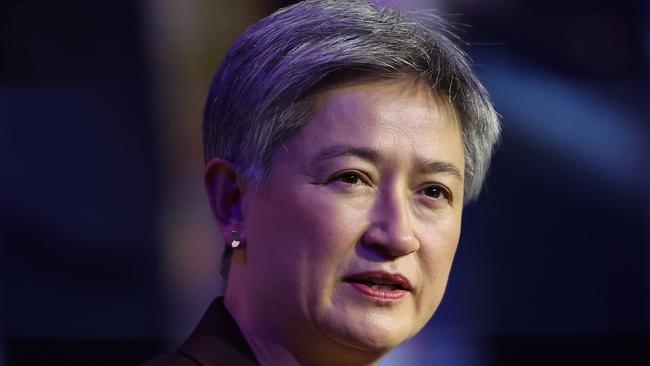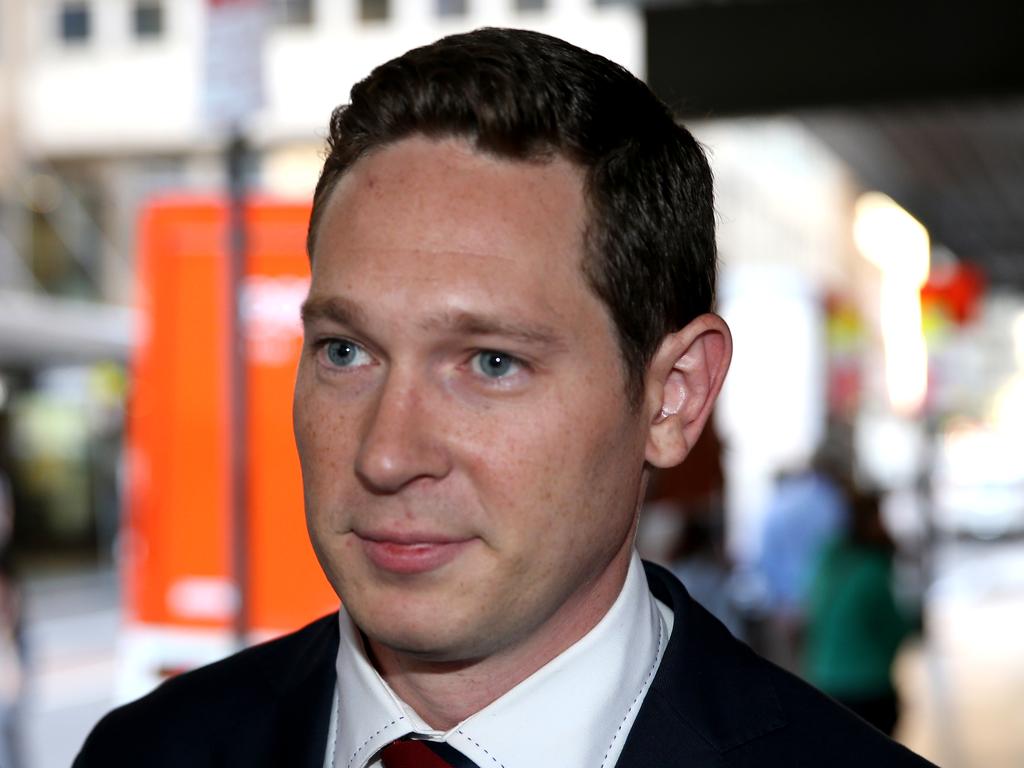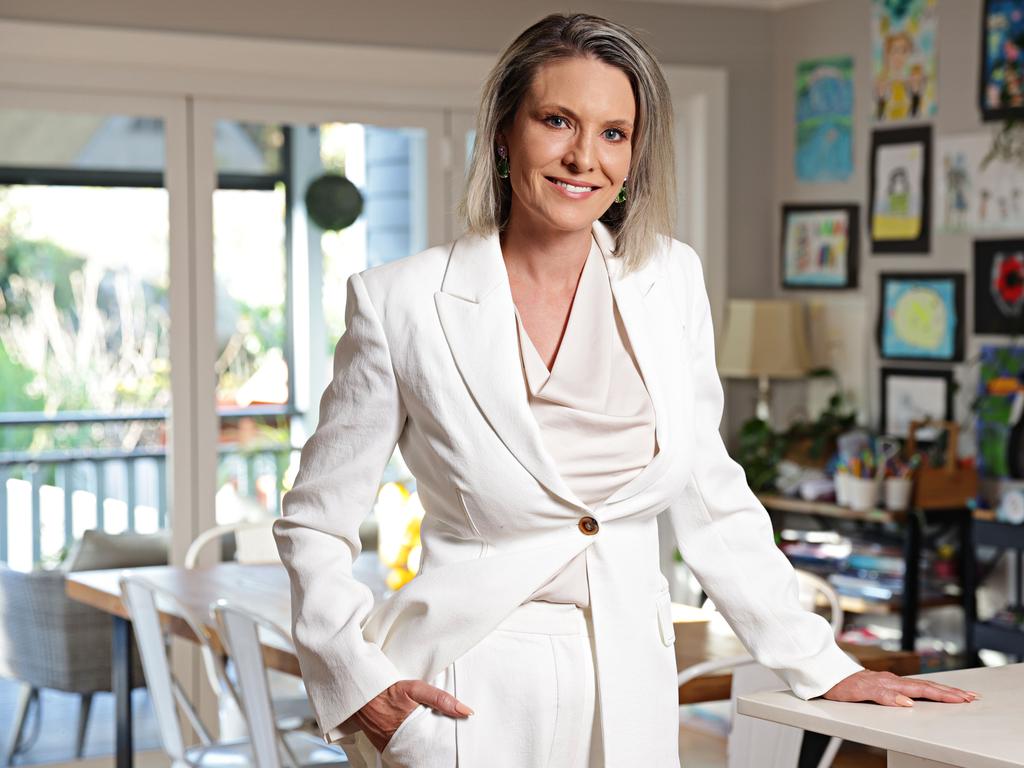Asia Pacific ‘not about who’s the top dog’: Wong
Australia must work ensure ‘no country dominates, and no country is dominated’ in the Asia Pacific, Foreign Minister Penny Wong warns.

Penny Wong has warned Australia must not reduce the future of the Asia Pacific to a contest between the US and China over “who is top dog”, but work to uphold a strategic equilibrium “where no country dominates, and no country is dominated”.
In an address to the National Press Club on Monday, the Foreign Minister will say the regional balance must be “supported by military deterrence” to ensure growing economic interdependence is not “misused for political and strategic ends”.
In a draft copy of the address obtained by The Australian, Senator Wong warned against embracing a simple “black-and-white” view of the region as a staging-house for great power rivalry where the strategic calculus was dominated by “who is ahead in the race, or who holds strategic primacy”.
She instead argued for foreign policy to be anchored around the pursuit of Australia’s key interests, including the effective management of growing competition, the preservation of stability and a respect for sovereignty “where countries of all sizes can choose their own destiny”.
“It is more than great power rivalry and is in fact nothing less than a contest over the way our region and our world works,” she said in her address.
Senator Wong said taking this approach would help to “avert war and maintain peace” while shaping a region “that reflects our national interests and our shared regional interests”.
“Viewing the future of the region in terms simply of great powers competing for primacy means countries’ own national interests can fall out of focus,” she warned. “It diminishes the power of each country to engage other than through the prism of a great power.
“Countries like ours in this contested region need to sharpen our focus on what our interests are, and how to uphold them.”
The address comes as Labor seeks to stabilise relations with Beijing after a period of heightened tensions, with Anthony Albanese hoping to visiting China later this year and Senator Wong last week revealing the government would temporarily suspend the nation’s World Trade Organisation action and give Beijing four months to lift its ban on Australian barley.
Ahead of the release of the Defence Strategic Review that is expected before the end of April, Senator Wong also championed the need for Australia to develop a strong deterrent capability to ensure no aggressor could “ever conclude that the benefits of conflict outweigh the risks”.
“This is fundamental to assuring the safety and security of our nation and our people,” she said. “Our foreign and defence policies are two essential and interdependent parts of how we make Australia stronger and more influential in the world.
“Together, they make it harder for states to coerce other states against their interests through force or the threatened use of force.”
Defence Minister Richard Marles said on Sunday that the nation was preparing to host its “largest ever” military exercise with the US across northern Australia along with 11 other partner nations including Britain, Canada, Germany, France, Japan, South Korea, Indonesia, New Zealand, Papua New Guinea, Fiji and Tonga.
The Philippines, Singapore and Thailand will attend as observers at the Talisman Sabre exercises that are held every two years and scheduled from July 22 to August 4.
About 30,000 personnel will participate in the exercises stretching across four states and territories including Western Australia, the Northern Territory and NSW, although military activities will be most heavily concentrated in Queensland.
Mr Marles said the exercises reflected “a shared commitment to enduring relationships between trusted partners, and a stable Indo-Pacific through an upholding of the rules-based order” and served as a “demonstration of our enduring alliance with the United States”.
The 14-day exercises will involve “large scale logistics, multi-domain firepower demonstrations, land combat, amphibious landings and air operations”.
Talisman director brigadier Damian Hill said this year’s exercise would “demonstrate our ability to receive large volumes of personnel and equipment into Australia from across the Indo-Pacific and stage, integrate and move them forward into the large exercise area”.
In her address to the National Press Club, Senator Wong said Australia needed to strive towards a “region that is open, stable and prosperous” and which operated according to “agreed rules, standards and laws”.
She said her objective was to achieve a region “where no country dominates, and no country is dominated” under a broad strategic equilibrium.
“An equilibrium that safeguards our capacity to disagree. An equilibrium that preserves our agency. An equilibrium that protects our ability to decide our own destiny,” she said. “When we talk about our interests, this is what we mean.
“Strategic competition is not merely about who is top dog, who is ahead in the race, or who holds strategic primacy in the Indo-Pacific. It’s actually about the character of the region.
“It’s about the rules and norms that underpin our security and prosperity, that ensure our access within an open and inclusive region, and that manage competition responsibly.”
Though she does not reference China in the address, Senator Wong said it was clear from her travels that countries did not want to “live in a closed, hierarchical region where the rules are dictated by a single major power to suit its own interests”.
“Instead, we want an open and inclusive region, based on agreed rules, where countries of all sizes can choose their own destiny,” she said.
“Countries want a prosperous, connected region, trading together at the epicentre of global economic growth, through a transparent system, where economic interdependence is not misused for political and strategic ends.
“It is also clear that countries want a region that is peaceful and stable. And that means sufficient balance to deter aggression and coercion – balance to which more players, including Australia, must contribute if it is to be durable.
“A balance where strategic reassurance through diplomacy is supported by military deterrence.”








To join the conversation, please log in. Don't have an account? Register
Join the conversation, you are commenting as Logout